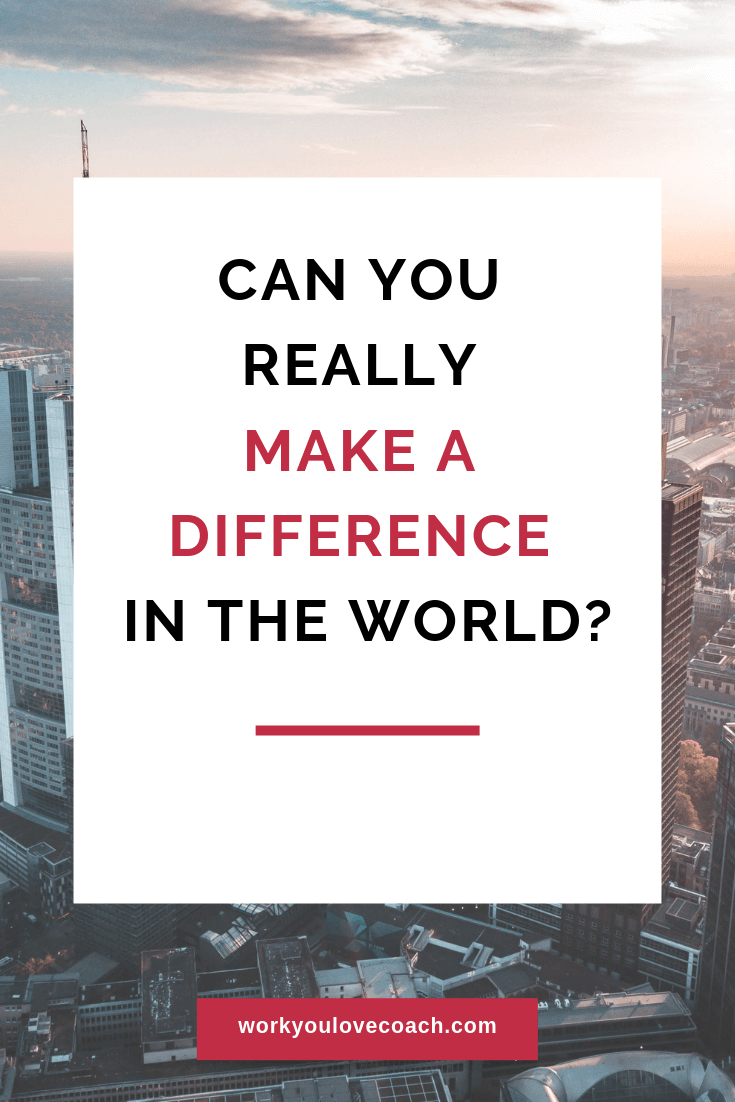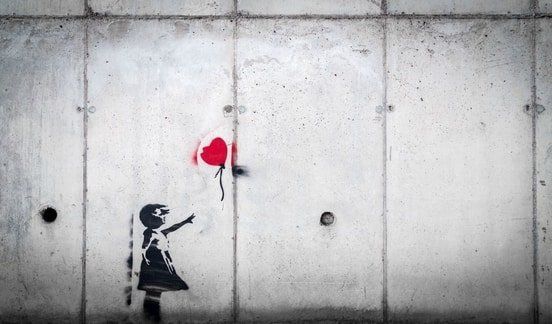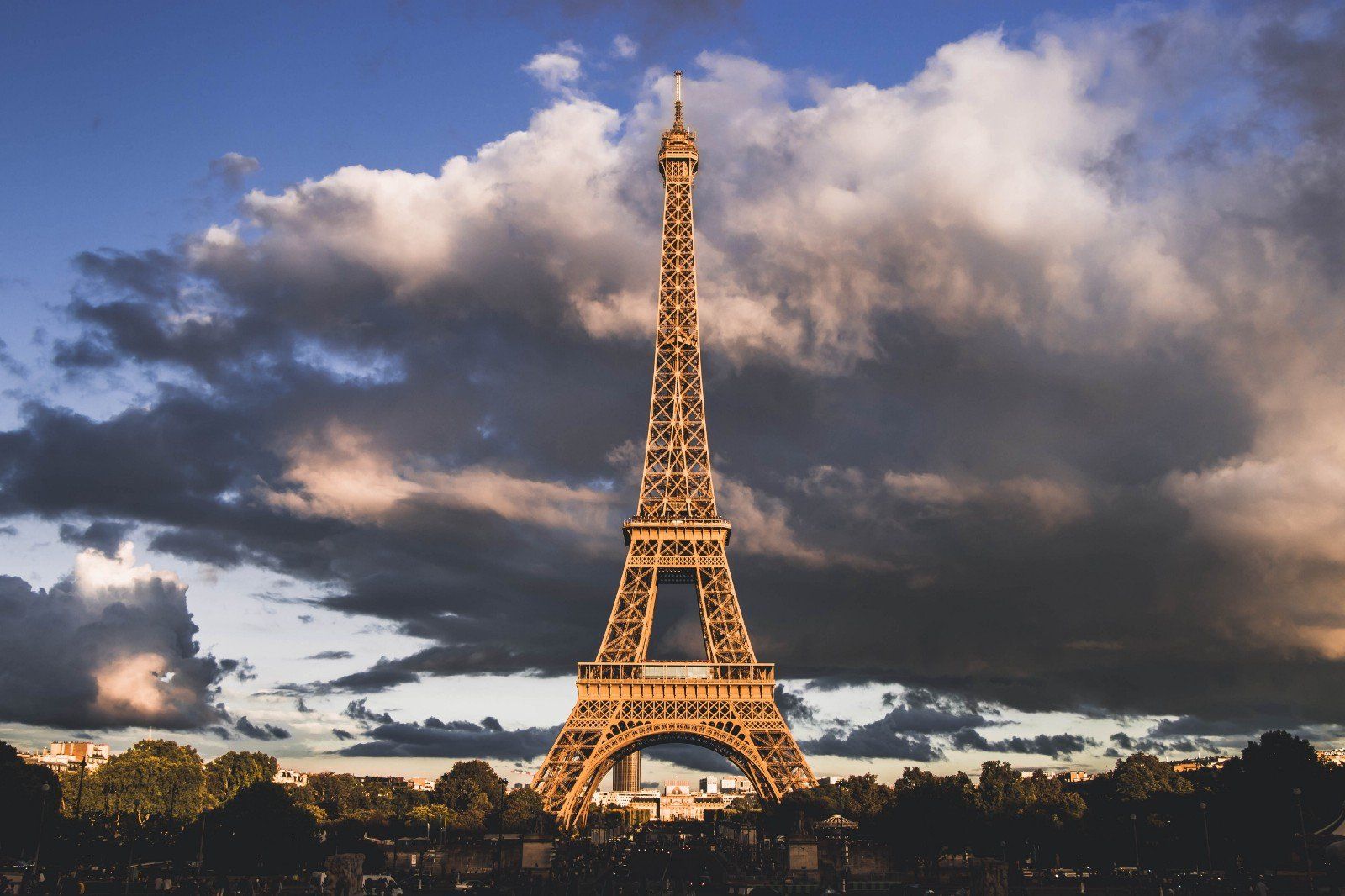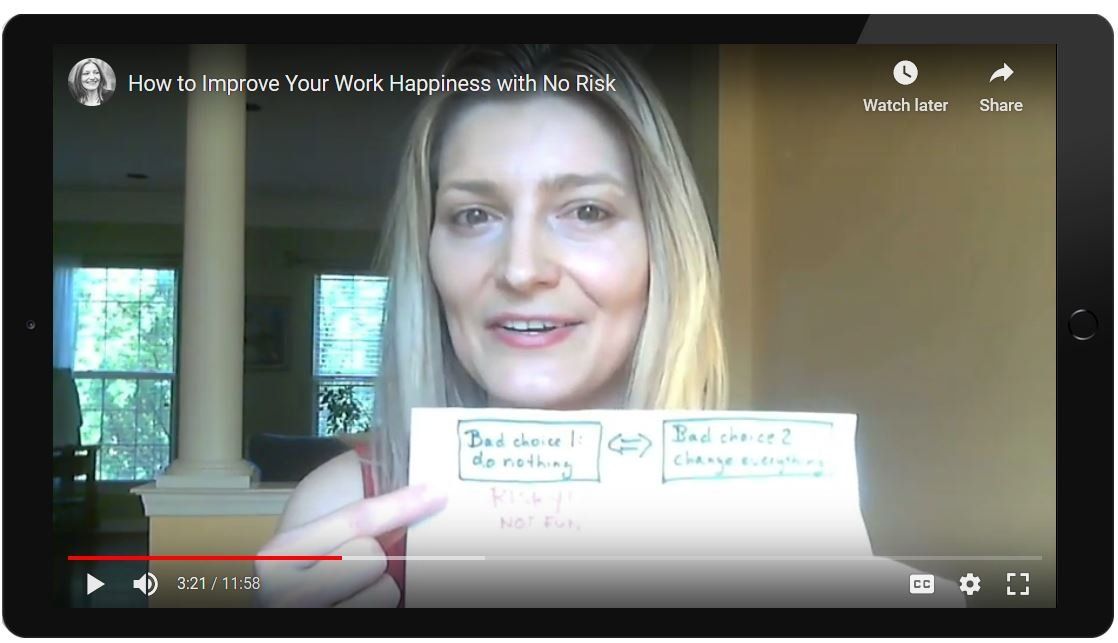Can You Really Make a Difference in the World?
Do you sometimes, secretly wish to make a difference but find yourself wondering if that's even possible?
After all, the world is as huge as its problems.
Maybe you sometimes find yourself despairing at the scope of challenges we face.
The dismal conditions many people live in. The suffering that should be avoidable. And the injustices that still happen in the 21st century all over the world.
If you're like many people I know, you really want to change something about this and be of service.
And yet, you might find yourself wondering if your actions really matter. After all, there are over 7.6 billion
people in the world. 🌏
Given this, you might find yourself wondering if anything you do can actually make a difference. And sometimes, you might think that it's perhaps easier to give up than step into your full leadership.
If that is you, take heart. Keep calm and keep reading as we explore why your actions in the world are important.
The powerful movies that shows you can make a difference in the world:
I'd like to share with you a powerful scene from a movie that shows why your actions in the world matter.
The scene I’m referring to is from the movie Cloud Atlas, an epic work by The Wachowskis (who also created the Matrix trilogy) and German director Tom Tykwer.
Before I talk more about the scene, I want to share a few things about the movie itself. (If this is not of interest to you, feel free to skip to the next heading.)
I think the following shows just how many problems its makers faced both before and after production. Keep in mind that this is only an incomplete list:
- The movie is based on the novel “Cloud Atlas” by David Mitchell. Mitchell himself considered his book to be “unfilmable.” I guess some people really like a challenge...
- "Cloud Atlas" tells a number of different plotlines across six different eras. It's basically six movies for the price of one. And here I was thinking that my Ph.D. topic was overly complex...
- Speaking of price, The Wachowskis had a really hard time finding financial support for the movie. Despite their commercial success with their previous works (*coughs* "The Matrix" *coughs*), the press-shy siblings reportedly basically had to beg Warner Bros. for financing. The project was almost abandoned a number of times.
- The team's persistence paid off and they eventually secured a $128 million dollar budget for the movie. This was provided by a ragtag crew of independent sources---including Warner Bros., the German government, Asian investors and The Wachowskis themselves (talk about commitment to your art!). It is one of the most expensive independently financed films of all times.
- It’s a 3-hour movie that received a mixed reception — some people absolutely loved it (😍), others completely disliked it (👎). Seriously, if you check the Internet Movie Database (IMDb), you’ll find a lot of 10/10 reviews for this movie— and a many 1/10 ratings. True to form, "Cloud Atlas" is also included on various Best Film and Worst Film lists.
Here's the scene that shows why our actions matter, regardless of the circumstances
It’s set in the 19th century in San Francisco.
Adam Ewing and his wife Tilda have just declared that they will travel to the eastern United States to join the Abolitionist movement. After owing his life to astowaway Moriori slave, Adam wants to join the fight against slavery.
Adam's father-in-law Haskell Moore tries to talk (or rather, threaten) him out of it. He states that there’s a “natural order to things,” that the abolitionists will never succeed and that joining them would be dangerous.
Moore concludes with a line that truly stings and that you might have heard before:
“No matter what you do it will never amount to anything more than a single drop in a limitless ocean.”
Ouch.
But Adam's response is beyond perfect:
“What is an ocean but a multitude of drops?”
And that’s why your actions matter.
Your actions matter because you are a beautiful “drop” in the ocean, an ocean that wouldn't be the same without you in it. Or, how the Persian poet and mystic Rumi put it:
“You are not a drop in the ocean. You are the entire ocean in a drop.”
Your actions matter because you matter. You can make a difference. You already are making one.
You're making a difference, it's just impossible to tell how
As a whole, "Cloud Atlas" shows how actions can have ripple effects that we might never know about. One sentence in a diary can impact a reader’s life a century later, which in turn might make a difference for yet another person in the future.
Or do you think Roman Emperor Marcus Aurelius would have expected people in the 21st century to benefit from reading the private notes he had written to himself about how to become a better person? Do you think he knew that Latin would become a dead language but that translations of his personal writings would be openly accessible worldwide, for instance, here?
Of course, these are extreme examples because of the historic significance of Anne Frank as a victim of the Holocaust and of Marcus Aurelius as, well, arguably the world's most powerful man at the time.
(Isn't it strange to think that future archaeologists might obsess about your kitchen utensils? Maybe it's time to invest in super-sturdy and everlasting ones... all in the name of science and impressing future generations, obviously.)
I don't think Neanderthal cave painters knew that they would become extinct but that their art would endure. That their work would become the world's oldest cave art and that in 2018, a publication called the New York Times would run an article called "Neanderthals, the World’s First Misunderstood Artists."
Life is mysterious and so are the ways in which you impact people and make a difference in their lives
You have likely touched the lives of people in ways you might never (or only by chance) hear about.
For instance, I once facilitated a course for free. At the time, felt like it had been a failure and a waste of my time. I didn’t think the participants really got a lot out of it or were too happy about how I had facilitated the course. 😞
Months later I was at a meeting. A number of the former course participants were also present. Without any prompt, they described how the course had impacted them in extremely positive ways. One person even mentioned how something I had taught in passing had impacted their dealings with a foreign government (!!!). 😳
Needless to say, I was beyond surprised and stunned. (And extremely grateful.)
A throwaway comment during something that I thought was a waste of my time had international ripple effects that I would have never known about had I not gone to that meeting. Talk about a learning experience.
And even though I got the praise from this participant, I wasn’t actually the one who came up with all of it. In my throwaway comment, I had referred to something someone had taught me, who in turn had learned it from someone else… ripple effect upon ripple effect upon ripple effect.
This has me wonder what amazing ripples in the ocean you have already set in place, maybe without even intending to.
With heartfelt appreciation,
A fellow drop in the ocean
P.S.: Are there specific ways in which you want to make a difference/impact?
If you want to explore receiving support with that, I invite you to check out my coaching offer here.
* I think the movie received such a mixed reception because it was so avant-garde, blurring the boundaries that movie-goers are used to. It took me an hour warming up to the movie and I was close to stop watching it at some point, but I’m so glad I stuck with it.
I think this movie is a revelation. A celebration of the interconnectedness of things. A harbinger of a new level of development. In other words, I’m not surprised “Cloud Atlas” reportedly received a ten-minute standing ovation at the Toronto Film Festival. 👏






